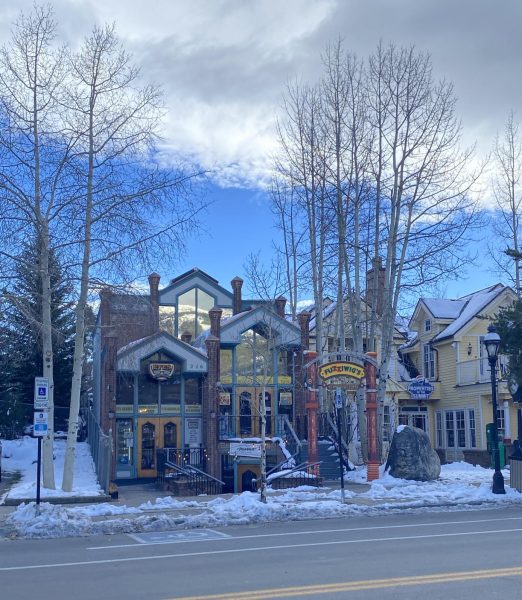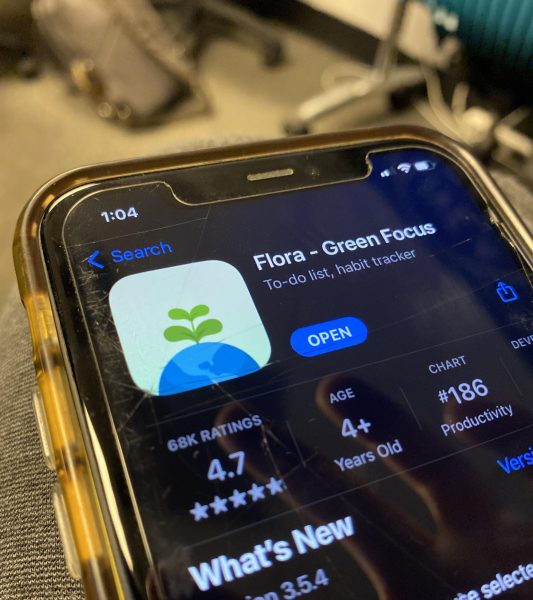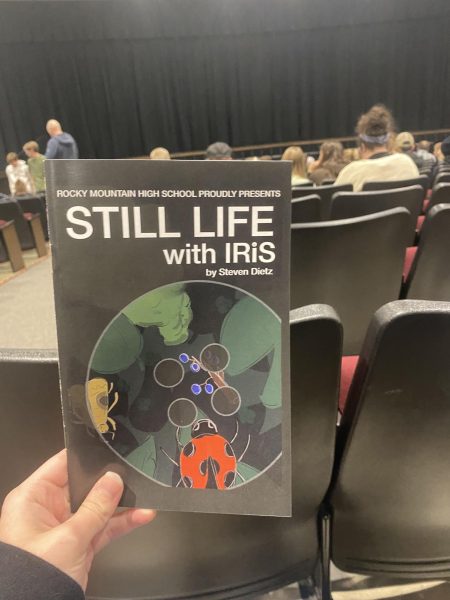Human Trafficking presentation spreads critical information to students last week
Last Friday, the 28th, Christine Matthie and Jason Powell gave a presentation on Human Trafficking in Colorado at Rocky Mountain High School.
The presentation was introduced by Jason Powell, the Equality Diversity and Inclusion specialist at the school. It was then led by a trainer at Colorado Human Trafficking Council and former Fort Collins High School teacher, Christine Matthie.
The demonstration was an introduction to human trafficking issues around the world and, more specifically, Colorado. It went over statistics within human trafficking, types of trafficking, and how to recognize it when you see it.
According to the presentation, over eighty percent of human trafficking is of adults, despite media representation. Similarly, most of human trafficking is of labor trafficking, and a small percentage is of sex trafficking.
Human Trafficking Council of Colorado defines labor trafficking as “The recruitment, harboring, transportation, provision, or obtaining of a person for labor or services, through the use of force, fraud, or coercion for the purpose of subjection to involuntary servitude, peonage, dept bondage or slavery.”
This definition was taken from Colorado’s federal laws along with the definition of sex trafficking as “The recruitment, harboring, transportation, provision, obtaining, patronizing or soliciting of a person for the purpose of a commercial sex act, in which the person forced to perform such an act is under the age of 18 years.”
Human trafficking has a wide range of what it might look like. Often, people are promised some payment or reward in exchange for labor or sex services, and infrequently recieve what they are promised. This loop creates a dependency for people being trafficked, as they are under the illusion they will be rewarded. People who are trafficked are generally in an emotionally or financially vulnerable position, and more liable to being bribed and ultimately trafficked.
People being trafficked can show up in more common places than expected. Often they are selling items door to door, doing janitorial work in places such as hotels, working in beauty salons, and other services. Looking for signs of confusion, disorientation, disassociation, fear, and abuse can help rescue victims of trafficking.
There is action to take if suspicions about trafficking arise. If you suspect that someone is in a dangerous situation, asking them if they know what city and county they’re in, if they’ve gotten paid for their work recently, if they need food or water, if they feel safe, and other similar questions can give you an idea.
Most importantly, Matthie warned her audience to “trust your gut.” She believes that is one of the safest ways to determine if a situation is right or not. If it feels wrong, it is likely that it is.
If you or someone you know is in a trafficking situation, there are resources available. Laws are secured that if you report being trafficked, you will not be penalized for involvement. Law enforcement will solely go after your trafficker.
For resources that don’t require going straight to the police, you can text “BE FREE” to 741741, call the national human trafficking hotline at 1-888-373-7888, call the Colorado state hotline at 1-866-455-5075, or text a Colorado state hotline at 720-999-9724.
Your donation will support the student journalists of Rocky Mountain High School - CO. Your contribution will allow us to purchase equipment and cover our annual website hosting costs.






